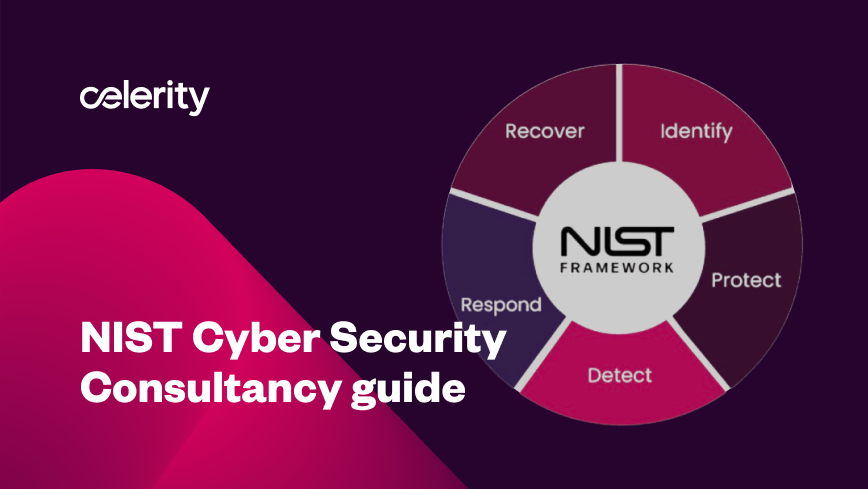What is operational resiliency?
By Emily Davidson
20 March 2025To understand what operational efficiency is- we must first start with what it is not.
There really are countless misconceptions when it comes to operational resilience and its associated frameworks.
The primary misconception is that operational resilience is simply a nice-to-have and is mainly the responsibility of IT teams. In fact, for an effective operational resilience framework, it’s crucial to keep operational resilience at the heart of your organisation.
‘Operational resilience is not a technical issue...it must begin in the boardroom.’ - Sir Jon Cunliffe, Bank of England
To be clear, operational resilience is NOT:
- A disaster recovery plan- operational resiliency is about threat prevention as well as threat resolution
- A one-off security measure- operational resilience must be a continual practice to protect against evolving threats
- A one-size-fits-all framework- operational resilience depending on your teams, technology infrastructure, industry, and organisational culture
Operational resilience is, however:
- A strategy and framework to ensure an organisation can predict, prevent, eliminate and recover from disruptions- without compromising the delivery of their essential services
- Protection against internal and external threats such as cyber-attacks, system outages, human error- and even natural disasters
- A way to safeguard your organisation’s reputation, ensure compliance, prevent costly downtime and fines, eliminate threats, and secure business continuity
How to build an operational resilience framework
A robust operational resilience framework is mandatory for the financial services sector, energy and utilities companies, telecommunications providers, critical national infrastructure, and public sector and government organisations.
For example, operational resilience is critical to the financial sector to ensure continuity of essential services and maintain public trust and confidence. According to IBM's Cost of a Data Breach report, the average lost business cost following a data breach was $1.47 million in 2024. With a heavy reliance on real-time payment systems, any downtime in payments connectivity can be a significant threat. This downtime can harm a business’s reputation, as well as the global financial ecosystem.
Your operational resilience framework is the strategic approach to fortifying your organisation against disruption- allowing business as usual to continue even when under a cyber-attack or in the event of a system outage.
Key components of the operational resilience framework include:
Identifying your minimum viable organisation
This refers to the services that are absolutely essential to the running of your organisation and would cause the most harm internally and externally if disrupted. This is with a view to prioritising these services in your operational resilience strategy.
Setting your impact tolerance
For each of these essential services, you then need to set the maximum tolerable level of disruption. You need to understand the threat landscape, potential risks, and timeframes required for recovery to ensure your impact tolerance is accurate and realistic.
Understanding and testing your dependencies
Dependencies could include your systems, teams, and third parties party providers (such as managed IT service providers)- essentially, this any service, system, individual, or organisation that you depend on to keep operations up and running.
To mitigate potential disruptions out of your direct control, it is crucial to find the potential vulnerabilities of your dependencies (such as cash flow issues with your suppliers of cyber security risks with third party technology providers), test and evaluate these, and then create contingency plans accordingly.
Protecting your organisation
Protecting your organisation against your findings can look like:
- Creating continuity plans and disaster recovery plans
- Establishing real-time 24/7 monitoring systems
- Fostering a workplace culture that prioritises operational resilience
Crafting your internal and external communication plans
Create actionable plans to communicate with stakeholders in the event of a disruption, ensuring you can act quickly to minimise your reputational damage.
Your operational resilience framework should be frequently reviewed and updated as your organisation and the threat landscape evolve. If you already have created your operational resilience framework and are looking to enhance your approach, check out our blog on how to build operational resilience in your organisation for a deeper understanding of building an operationally resilient culture.
How Do Cyber Security Managed Services Help with Operational Resilience?
Cyber security managed services are a cost-effective way of maintaining operational resilience in your organisation by delivering:
- Enhanced threat detection and prevention- by using advanced tools such as managed SIEM solutions
- Rapid incident response and recovery- including 24/7 AI-powered incident response
- Ensuring compliance with all regulators through robust exposure management insights
- Providing education and learning, consolidating a resilient culture through expert cyber security consultancy
- Continuous security and monitoring with enhanced endpoint protection and advanced threat detection
Despite the many misconceptions, operational resilience, when carried out effectively by an experienced cyber security managed service provider, is crucial to business continuity and success. For this to be successful, internal teams must collaborate with managed IT service providers, ensuring resources are allocated to operational resilience initiatives and that a culture of resilience is embraced at all levels.
Learn more about our cyber security managed services that are adept at driving operational resilience- even in highly regulated sectors.
Latest resources

What is the NIST Cyber Security Framework?
When it comes to managing and reducing your cyber security risk, the NIST Cyber Security Framework is the most robust and accessible set of guidelines, aligning your entire organisation. The National Institute of Standards and Technology (NIST) Cyber Security Framework is made up of six essential functions to ensure businesses can manage and mitigate their […]

Quantum Computing: The Silent Threat to NHS Data Security
As NHS leaders focus on transformation priorities – shifting care from hospital to community, treatment to prevention, and analogue to digital – a silent threat looms. Quantum computing, while promising revolutionary advances in healthcare, also poses serious risks to the security of sensitive patient data. And that’s regardless of whether an organisation uses quantum or […]

What does cyber resilience actually involve?
Between 2023-2024, there were 7.78 million cybercrimes of all types committed against UK businesses alone. From ransomware to phishing attacks, the risk of a security breach is always looming. These cybercrimes can have disastrous consequences for businesses- from sensitive data breaches to complete system outages- which can come with high financial costs and reputational damage. […]